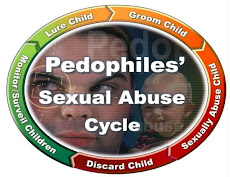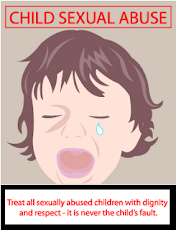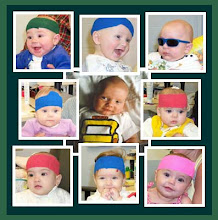Provided by
DR WIDODO JUDARWANTO
FIGHT CHILD SEXUAL ABUSE AND PEDOPHILIA
Yudhasmara Foundation
JL TAMAN BENDUNGAN ASAHAN 5 JAKARTA PUSAT, JAKARTA INDONESIA 10210
PHONE : (021) 70081995 – 5703646
email : judarwanto@gmail.com,
http://pedophiliasexabuse.blogspot.com/
False Accusations of Sexual Abuse Involving a Minor
It is easy to accuse someone of child molestation or rape, and once the accusation is made the damage is done. We see false accusations in these cases against out clients on a regular basis, and we understand the dynamics that often lead to these accusations being made.
For example, you’ve been going through a long, drawn-out child custody battle with your spouse. One day, out of the blue, a detective shows up at your office. “Sir, we want to ask you a few questions about your daughter.” Then the horror begins—the detective speaks the unspeakable—your young daughter has allegedly told your ex-wife that you’ve been touching her on her privates. With little more than a brief interview of your daughter and your ex wife you could be charged with a Class A sex offense with the potential of life in prison.
Or, you’ve just moved in with your romantic partner of two years, who has a teenage daughter. The daughter is out of control, staying out late, partying, using drugs and alcohol, skipping school, dating multiple boyfriends. You decide to enforce boundaries with this teenager, there is an argument and she runs away. Before you know it, you’re getting a phone call from CPS, who’s at the school interviewing the teenager about allegations that you forced her to have sexual intercourse with you while her mother was at work.
False allegations and false accusations of sexual abuse against children are brought more often than one would think, and defending the person accused takes experience and skill. These allegations are made for a variety of reasons, but the impact is always severe. We work as a team on these difficult cases every day. We know how to investigate the allegations and not rely on what the police reports tell us. We know how to employ the experts and interviewing techniques to uncover false accusations. We have a proven track record of dismissals and not guilty verdicts that demonstrate our ability to fight the false accusation.
How could I end up falsely accused of sexually abusing a child?
In our experience, we see two major themes emerge in all cases involving false accusations; dysfunctional families and faulty police investigations.
Dysfunctional families: Children will sometimes falsely accuse family members of sexual abuse when the family is in crisis or upheaval. The parents are getting divorced and fighting for custody. An uncle has a serious drug addiction which has siphoned off family resources. Mom has started dating a new boyfriend, and her daughter resents him. A teenager is acting out at school and is looking for an excuse for her behavior. A child gets caught acting out sexually and takes that opportunity to blame someone else.
What are some of the examples of family dysfunction you’ve seen which result in false accusations of child sexual abuse?
Although there are many reasons for a child to falsely accuse someone, the common themes we see in practice are :
- Child custody disputes
- Long and bitter divorce proceedings
- Suggestive and leading questioning by authority figures
- Intentionally placed false memories
- Teenagers acting out of control
- Attention-seeking behavior by the child
- Prior sexual abuse within the family
- Divorced parents dating new romantic partners
- New stepparents enforcing boundaries, causing resentment by the child
- Drug and/or alcohol abuse by the accused, causing resentment by the child
- Drug and/or alcohol abuse by the child
- Challenges managing mental illness of the child, including borderline personality disorder, bipolar disorder, post-traumatic stress disorder
- Adverse reactions to psychotropic medication used to treat mental health disorders, including Celexa, Paxil, Zyprexa, Lithium, Ritalin, and others
- We know how to identify these issues and to make them an issue in your defense. We are prepared to do the investigation, work with the experts, and interview the children involved to insure that the roots of the false accusation are clearly exposed.
Faulty police work: Police officers are human, and they can make critical errors when investigating these emotionally-charged crimes. Police often take the word of the accuser at face value and never question what their told. They investigate to confirm their belief that the accuser is telling the truth, instead of testing the truthfulness of the accusations. A brief police investigation and a brief interview of a child may be all that is collected before you are charged with life changing allegations. We have the experience and the skill to expose faulty, brief and biased investigations, and to conduct our own investigation to insure you are properly represented.
What are some of the examples of faulty police work you’ve seen which result in false accusations of child sexual abuse?
Common examples are:
Suggestive interviewing of the child by others that is not discovered by the police.
Brief and suggestive interviews of children that do not test the allegations. Investigative interviews are typically not conducted at all until the defense attorney gets their chance, and the attorney better know what their doing if this is to uncover the problems with the charges.
Confirmatory investigations—officers investigate to CONFIRM the statement of the child, instead of test and challenge its truthfulness
Failing to seek out evidence, such as counseling records and school records or other children who are alleged to have seen the conduct
Failing to take a thorough history of the child, including alcohol and drug use, psychiatric history, and use of psychiatric medications
Using coercive means to obtain statements from the accused
Failing to interview witnesses who either corroborate or contradict statements by the child
We understand what a police investigation should entail, and are able to criticize the cursory investigations we see in our practice. We then communicate those problems effectively and in a way that a jury will understand.
.jpg)









.png)
